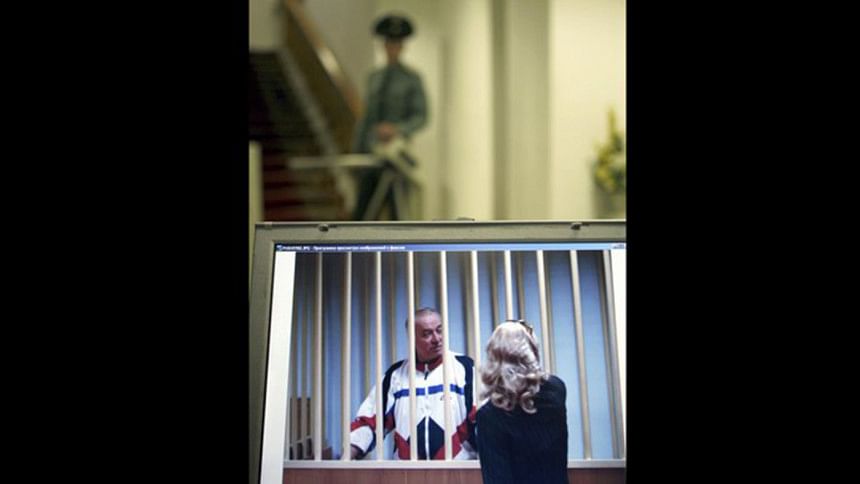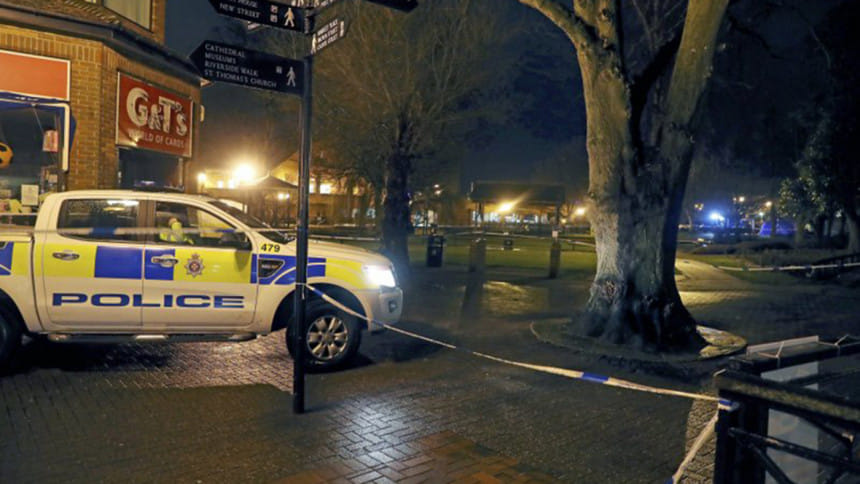Former Russian spy critically ill after exposure to 'unknown substance'

The Kremlin said today that Russia has not been approached by British authorities to help in an investigation over how and why a former Russian spy was found critically ill in a shopping mall in a town in southern England.
British media have identified him as Sergei Skripal, 66, who was convicted in Russia on charges of spying for Britain and sentenced in 2006 to 13 years in prison. Skripal, who is said to have suffered exposure to an “unknown substance” was freed in 2010 as part of a US-Russian spy swap.

A woman was also found unconscious Sunday afternoon in Salisbury, about 90 miles (145 kilometers) west of London.
Dimitry Peskov, President Vladimir Putin’s spokesman, said Tuesday at a daily conference call with media in Russia there has been no request for help but that “Moscow is always ready to cooperate.”
Wiltshire Police, which is responsible for the Salisbury area, said the man and woman appeared to know one another and had no visible injuries.
“They are currently being treated for suspected exposure to an unknown substance. Both are currently in a critical condition in intensive care,” the police department said in a statement.
The discovery led to a dramatic decontamination effort. Crews in billowing yellow moon suits worked into the night spraying down the street, and the Salisbury hospital’s emergency room was closed.
Public Health England said it had only limited information about the patients, but there “doesn’t appear to be any further immediate risk to public health.”
“PHE understands that those exposed to the substances have been decontaminated,” the health agency said in a statement.
Public records list Skripal as having an address in Salisbury.
Skripal served with Russia’s military intelligence, often known by its Russian-language acronym GRU, and retired in 1999. He then worked at the Foreign Ministry until 2003 and later became involved in business.
After his 2004 arrest in Moscow, he confessed to having been recruited by British intelligence in 1995 and said he provided information about GRU agents in Europe, receiving over $100,000 in return.
At the time of Skripal’s trial, the Russian media quoted the FSB domestic security agency as saying that the damage from his activities could be compared to harm inflicted by Oleg Penkovsky, a GRU colonel who spied for the United States and Britain. Penkovsky was executed in 1963.
Skripal was pardoned and released from custody in July 2010 as part of a US-Russian-spy swap, which followed the exposure of a ring of Russian sleeper agents in the United States.
The circumstances surrounding Sunday’s incident were still murky and police urged the public not to speculate. But few could avoid invoking the name of Alexander Litvinenko — the former Russian agent who died after drinking polonium-210-laced tea in a swanky London hotel in 2006.
His illness was initially treated as unexplained; evidence eventually emerged indicating he had been deliberately poisoned with the radioactive material.
A British judge wrote in a 2016 report that Litvinenko’s death was an assassination carried out by Russia’s security services — with the likely approval of Putin. The Russian government has denied any responsibility.

 For all latest news, follow The Daily Star's Google News channel.
For all latest news, follow The Daily Star's Google News channel. 






Comments